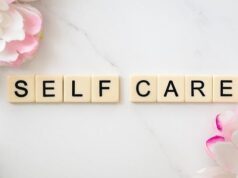In the intricate tapestry of romantic relationships, understanding your partner’s thoughts and feelings can sometimes feel like piecing together a puzzle. One aspect that can evoke anxiety or curiosity is body perception, particularly when it comes to height or physical stature. If you’re wondering whether your girlfriend harbors thoughts about your size—whether it’s playful teasing or a more serious concern—you’re not alone. Many individuals navigate similar feelings and uncertainties in their relationships. This article delves into the subtle clues and signs that may indicate your girlfriend’s perceptions, offering insights to help you navigate this delicate topic with understanding and sensitivity. Together, we’ll explore how to read the signals, fostering open communication and deeper intimacy in your partnership.
Understanding Body Language Signals in Relationships
Understanding her body language can provide significant insights into how she perceives you. If your girlfriend often engages in closed body language, such as crossing her arms or turning away from you during conversations, it may signify discomfort or lack of openness. Other cues to consider include whether she maintains minimal eye contact or often looks around the room instead of focusing on you. These behaviors can indicate insecurity or a feeling of distance, which might relate to her perceptions of your relationship.
Conversely, positive signals can also shed light on her feelings. If she frequently mirrors your movements and leans in while you talk, these gestures may reflect her affection and interest. Pay attention to the way she responds to compliments—if she blushes or smiles genuinely, it indicates that she values your opinion. Additionally, if she initiates physical touch, such as playful nudges or holding your hand, it might suggest that she feels secure in your presence. Observing these nuanced cues can help clarify the dynamics of your relationship and her feelings towards you.
Recognizing Subtle Complaints or Jokes
In relationships, humor often masks deeper insecurities or sentiments. If your girlfriend makes light-hearted jokes that seem to touch on size or stature, it may be time to pay attention. Consider her comments carefully; subtle jokes, even when presented in a playful tone, can sometimes carry unspoken criticisms. Watch for patterns such as:
- Frequent references to height or size in a joking manner.
- Playful teasing that feels more like a jab than innocent fun.
- Body language that suggests discomfort or sarcasm, like eye-rolls or half-smiles.
Additionally, consider how she reacts to discussions about relationships or attraction. If she often emphasizes traits like confidence or personality with an unusual intensity while seldom mentioning physical attributes positively, it could hint at deeper issues. Take note if she seems to:
- Divert conversations when compliments about you are made.
- Intentionally compare you to others in a way that highlights differences.
- Use humor as a shield to mask her true feelings.
Evaluating Her Reaction to Physical Intimacy
When assessing her reaction to physical intimacy, it’s essential to observe both verbal and non-verbal cues. Pay attention to her body language during intimate moments; signs such as leaning in, maintaining eye contact, or gentle touches can indicate comfort and pleasure. Conversely, if she appears tense, avoids eye contact, or physically withdraws, these may signal discomfort or dissatisfaction. Additionally, consider how she communicates after intimate encounters. If she openly expresses her likes and dislikes, it suggests she values the connection, while a lack of feedback might indicate uncertainty or concern about the relationship.
Engaging in open conversations about intimacy can foster understanding and strengthen your bond. Ask her about her feelings and preferences regarding physical closeness. This approach not only reassures you about her comfort level but also provides an opportunity for her to share her thoughts on intimacy in a non-judgmental environment. It’s also useful to reflect on any changes in her enthusiasm during intimate moments. A decrease in passion or a sudden shift in her behavior could hint at deeper issues beyond physical aspects, indicating the importance of exploring emotional intimacy alongside physical connections.
Exploring Her Preferences in Companionship
Understanding your girlfriend’s preferences in companionship can illuminate her feelings about your relationship and, implicitly, how she perceives you. Women often seek emotional support and connection above all. If she emphasizes qualities such as trust, communication, and empathy over physical attributes, it may indicate that she values deep, meaningful connections rather than superficial judgments. Look for signs like her willingness to share personal stories or her responsiveness to your emotional needs. This emotional investment can sometimes overshadow concerns about physicality, allowing you to understand that her priorities are more about the bond you share.
Additionally, paying attention to her communication style and the way she engages with you can provide insight into her feelings about companionship. If she frequently initiates conversations, seeks your advice, and shares her experiences, it suggests she’s looking for a partner who can communicate openly. Moreover, observing her reactions in social scenarios, particularly during conversations about relationships and body positivity, can reveal her values. If she demonstrates support for positive body image and emphasis on connection, it might signify that her affection transcends any insecurities about size and shapes her view of companionship into a broader perspective.
Analyzing Social Media Posts and Comments
To gain insight into how your girlfriend feels, pay close attention to her social media posts and comments. The way she expresses herself online can reveal a lot about her thoughts and feelings. Look for patterns in her interactions, such as the frequency of her compliments or the nature of her humor. You might notice subtle hints through the tone of her comments or the emojis she uses. For example, if she posts jokes or memes that emphasize size or height, they could indicate an underlying sentiment worth exploring.
Additionally, consider how she engages with other people’s content. When she reacts to friends’ posts about relationships or self-image, her comments may reflect her beliefs or insecurities. Take note of her reactions to discussions that relate to personal attributes, especially if they involve comparisons. Engaging her in conversation about these topics can also yield clear signals. If her comments seem to stray into negative territory regarding self-image or if she deflects compliments directed towards you, it might suggest she has concerns she hasn’t articulated directly.
Observing Comparisons with Other Partners
In any relationship, feelings of inadequacy can arise when one partner begins to draw comparisons, whether consciously or subconsciously. If you notice your girlfriend making comments that seem to reference other partners—be it through nostalgic stories or casual remarks—it may leave you questioning how you measure up. Such behaviors can manifest in various ways, including:
- Subtle hints: She might casually mention traits or characteristics of past partners that highlight your perceived shortcomings.
- Direct comparisons: If she explicitly states preferences for qualities exhibited by others, it can create an unsettling atmosphere.
- Social media influence: Engagement with images or stories depicting idealized relationships may also contribute to her views, making you feel less than adequate.
It’s essential to reflect on these interactions to understand their impact on your self-esteem. Comparisons can lead to feelings of jealousy and insecurity, but they can also spark introspection about what you bring to the relationship. Consider whether her comparisons stem from unresolved feelings or if they emerge from a desire for validation. Maintaining open communication can help differentiate constructive feedback from hurtful comparisons, paving the way towards a healthier dynamic where both partners feel valued and secure.
Identifying Conversations About Physical Attributes
When navigating conversations about physical attributes, subtle cues can reveal much about your girlfriend’s thoughts. Pay attention to how she discusses her own preferences, particularly in social settings or casual chats. If she frequently mentions the height or build of celebrities or friends, it may indicate a focus on physical characteristics. She might express admiration for certain traits, which can shed light on her preferences without necessarily pointing at you directly. Consider these factors:
- Comparative References: If she makes comments comparing you to others, it could be telling.
- Compliments or Critiques: Notice if her compliments are specific yet avoid certain topics.
- Jokes or Light Teasing: Humor about size can sometimes mask deeper insecurities or preferences.
Another layer to consider is her reaction during intimate or close moments. Body language often speaks louder than words; observe if she seems to prefer certain angles or positions that might suggest a sensitivity to size. Engaging in open discussions about attraction could also present an opportunity to gauge her feelings. Ask about what she finds attractive in a partner, and her responses may illuminate her thoughts towards you. Be mindful of:
- Body Language: Is she comfortable or reserved during certain interactions?
- Conversations about Attraction: Does she steer clear of discussing certain physical traits?
- Subtle Hints: Does she drop hints about physicality that you should take notice of?
Listening to Her Views on Masculinity
Understanding her perspective on masculinity can provide valuable insights into your relationship dynamics. Often, the way women perceive masculinity is shaped by social norms and personal experiences. If your girlfriend expresses admiration for traits traditionally associated with traditional masculinity—like strength, assertiveness, or protectiveness—it might not just be about you; it reflects broader cultural narratives about what it means to be a man. Consider paying attention to specific phrases she uses or the way she discusses male figures in her life, as these could hint at her expectations and feelings.
Here are some indicators to note:
- Compliments on confidence: If she frequently praises your self-assurance, it may signal she values traits often linked to traditional masculinity.
- Discussions on vulnerability: If she encourages openness about fears or insecurities, it shows she appreciates a more nuanced understanding of masculinity.
- Comments about other men: Pay attention to her opinions regarding male friends or public figures; they often reflect her ideals about masculinity.
Pondering these cues can help decipher whether she’s expressing concerns or affirmations about your masculinity. Furthermore, open dialogues can bridge understanding, fostering a supportive space where both partners can express their views on masculinity without judgment. Remember, everyone’s ideals differ, and what one person considers masculine might not resonate with another. Engage in conversations about gender roles and how they impact your lives together:
- Ask her about her views: Inquire gently about what masculinity means to her.
- Share your perspective: Openness fosters deeper connections and understanding.
- Explore common ground: Find aspects of masculinity that resonate with both of you.
Assessing Communication Patterns on Sensitive Topics
When navigating sensitive topics within a relationship, it’s vital to assess communication patterns that might signal unspoken concerns. If you’re uncertain about how your girlfriend perceives certain aspects of your relationship, paying attention to her verbal and non-verbal cues can provide clarity. Consider the following signs:
- Changes in Body Language: Notice if she exhibits closed-off postures, like crossed arms or avoiding eye contact, which may suggest discomfort.
- Subtle Jokes or Comments: Listen for lighthearted teasing that may carry a deeper meaning, as humor can often be a pathway to expressing insecurities.
- Frequency of Comparisons: If she often compares you to others in ways that seem unnecessary, it could hint at her concerns.
Moreover, the context in which these interactions occur is crucial. Assess whether conversations flow smoothly or if tension is palpable. Look for:
- Defensive Reactions: If she becomes defensive when the topic arises, it may indicate sensitivity around this subject.
- Attempts to Redirect Conversations: A tendency to change subjects when relevant discussions emerge might signify her reluctance to confront the issue directly.
- Emotional Responses: Pay attention to whether she appears anxious or upset when discussing relationship dynamics, as these feelings could reveal underlying concerns.
Understanding these communication patterns can help create a more open dialog, allowing both partners to navigate sensitive topics with greater ease and empathy.
Considering Cultural Influences on Perception
Perception is intricately linked to culture, shaping how individuals interpret and respond to various aspects of their environment, including interpersonal relationships. When considering whether your girlfriend thinks you’re small, it’s essential to recognise that cultural norms and values significantly influence her perceptions. In different cultures, attitudes towards body image and size vary widely. For example, some cultures may place a higher importance on athletic builds, while others might celebrate different body types. Understanding her cultural background can offer insights into her preferences and the standards against which she might be measuring you.
Furthermore, non-verbal communication frequently reflects these cultural influences. Observing her body language and verbal cues can be revealing. Consider the following indicators that might suggest her thoughts:
- Compliments or criticisms about body size made in jest or seriousness.
- Comparison with others in casual conversation, possibly highlighting ideals upheld in her culture.
- Reactions to physical intimacy, as comfort levels are often shaped by cultural perceptions of size.
Understanding these nuances will help you navigate the relationship more perceptively and can provide clarity on her views regarding physical attributes.
Developing Open Dialogue for Honest Conversations
Establishing a foundation for open dialog requires a commitment to fostering a safe space for both partners. It involves setting aside assumptions and judgments while developing the ability to listen actively and empathetically. Encouraging such honest discussions can be achieved by:
- Creating a comfortable environment that invites sharing.
- Being mindful of body language and tone to ensure the other feels at ease.
- Asking open-ended questions that promote deeper reflection and insight.
In these conversations, it’s crucial to embrace vulnerability, as sharing feelings related to self-image can be sensitive. To cultivate a richer dialog, both partners should prioritize transparency, which can lead to greater understanding of each other’s perspectives. Key strategies include:
- Expressing personal feelings without placing blame.
- Validating each other’s emotions and experiences.
- Emphasizing mutual respect and support throughout the discussion.
In Summary
navigating the complexities of relationships often brings forth insecurities that can linger beneath the surface. If you find yourself questioning whether your girlfriend harbors concerns about your size, it’s essential to approach the situation with both openness and understanding. Recognizing the signs—such as a lack of compliments or a change in intimacy—can serve as indicators of deeper feelings. Ultimately, the best way to address these feelings is through honest communication. Building a foundation of trust and vulnerability can not only alleviate your worries but also strengthen the bond you share. Remember, confidence and self-acceptance often speak louder than any concern about size, paving the way for a more fulfilling relationship.




